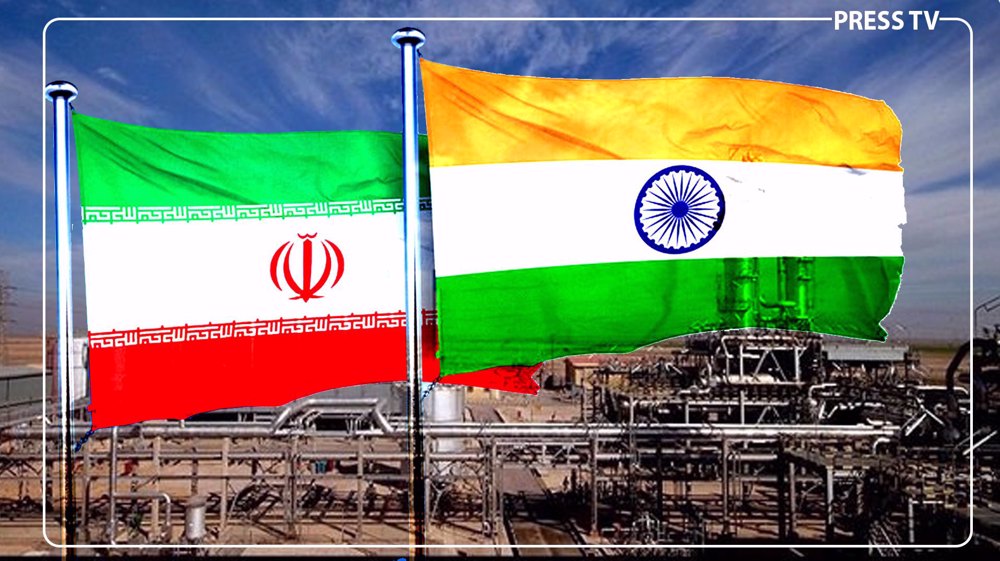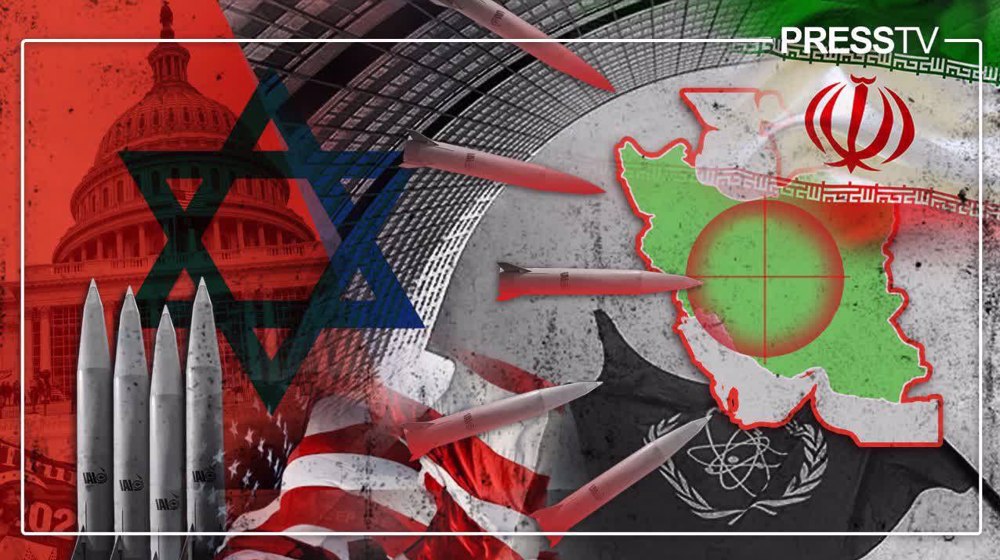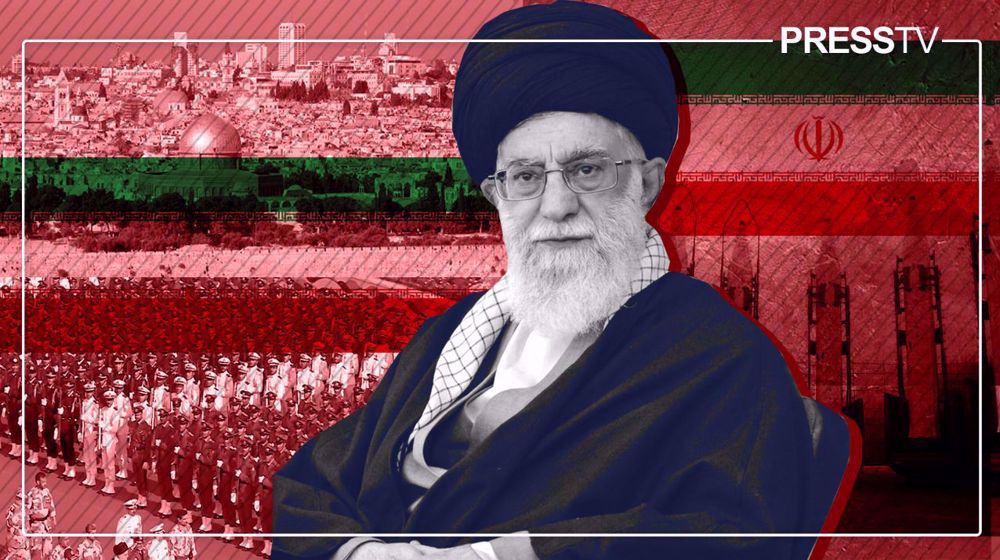Iran, India look to reset ties, including oil trade, amid waning US influence
By Mehdi Moosvi
The recent visit of Iran's deputy foreign minister for political affairs, Ali Bagheri Kani, to New Delhi manifested a new chapter of relations between the traditional allies, India and Iran.
India, which used to be among the largest buyers of Iranian oil, stopped its crude imports from Iran in May 2019 after the US banned oil trade with Iran by lifting sanction waivers, a year after Washington unilaterally walked out of the landmark nuclear deal.
The imprudent move resulted in bilateral trade between the two countries nose-diving to $2 billion in the fiscal year 2021-22, compared to $16 billion in 2018-19.
Since the outbreak of war in Ukraine in late February, Russia has slowly edged past other oil-rich countries to become India’s largest crude supplier, with New Delhi refusing to join the Western charade of anti-Moscow sanctions and prioritizing its energy security.
That has opened a window of opportunity for Tehran and New Delhi to recalibrate their ties, and resume oil trade, in defiance of Western sanctions.
According to reports, New Delhi is strongly considering the resumption of oil imports from Tehran amid the simmering energy crisis in the country and no help from the Western countries.
India prioritizing energy security
Deepika Saraswat, an associate fellow at New Delhi-based Manohar Parrikar Institute for Defense Studies and Analyses, asserts that New Delhi prioritizes its energy security.
“New Delhi's purchase of oil from Russia despite the Western sanctions on the country showed the importance of energy security given the context of high energy prices and supply constraints," Saraswat told the Press TV Website.
"Therefore, India has been an important voice supporting the return of Iranian and Venezuelan oil to the market,” she hastened to add, hinting at the resumption of the Iran-India oil trade.
Bagheri, during his visit to New Delhi, reportedly delivered Tehran's message to Indian Prime Minister Narendra Modi on the country's willingness and preparedness to resume oil trade with New Delhi.
“Not a choice but a necessity,” Bagheri was quoted as saying on the importance of closer India-Iran ties.
“Both countries enjoy different types of cooperation in the economic sphere. They are partners and complete each other. Iran enjoys a huge energy resource, and thus it can provide energy supplies to India,” Bagheri told the Indian media.
Bagheri's visit to New Delhi and discussion about oil trade came weeks after the Iranian ambassador to India, Iraj Elahi, stressed the importance of a close partnership between the two sides.
“There is no doubt that Iran and India were the best friends in dealing in oil. Iran was [meeting] the oil needs of India. But unfortunately, cooperation was affected by sanctions,” the envoy said.
“We always express our readiness to increase our economic ties with India. It’s up to India, we are ready to deliver oil.”
Oil trade and sanctions
In September, Tehran had called on New Delhi to resume oil purchases from the country, “ignoring unilateral” sanctions imposed by the US, similar to what New Delhi has done with Russian oil by skirting western sanctions.
Saurabh Kumar Shahi, a New Delhi-based journalist and commentator who mostly covers the Middle East region, is also of the opinion that New Delhi must go ahead with oil purchases from Iran.
“India should not be afraid of the illegal unilateral sanctions imposed on Iran by the US,” he told the Press TV Website in an interview.
Saraswat, referring to the new Iranian government's 'look eastward' policy, said it means Tehran's relations with regional countries will only improve.
“Since the new government came to power in Iran, its 'Asian orientation' in economic diplomacy means that relations with countries like China, Russia, and India have become a priority," she stressed.
"Foreign Minister Abdollahian's visit in June gave a much-needed boost to India-Iran ties, especially the commitment the two countries have shown in charting out a long-term roadmap for their relationship."
Amid the changing geopolitical dynamics, New Delhi has begun to assert itself on the world stage, with top ministers defending the decision to continue importing oil from Russia.
India's petroleum minister Hardeep Puri during his visit to Washington in October said New Delhi "will buy oil from wherever it has to", pointing to the country's new, vibrant foreign policy.
Saraswat said India has a “tradition” of independent foreign policy that is based on the country's “own national interest calculus.”
What goes around comes around
Amid the raging Ukraine war and the end of the unipolar world order, the power center is gradually shifting towards Asia, according to observers, which means the death of the American hegemony.
The main protagonists of the new world order are Russia, China, Iran and India.
This political atmosphere could act as a perfect catalyst to resurrect different spheres of the relationship between New Delhi and Tehran, according to observers.
“The world is changing at a fast pace, and the Western order is slowly starting to collapse, under these circumstances India also wants to secure its interests in the region and beyond," Shahi said.
"And in securing those interests, Russia and Iran are very, very important pillars as far as India is concerned,” he hastened to add.
With Iran set to join the Shanghai Cooperation Organization (SCO) and the BRICS grouping, of which Russia, China, and India are already core members, the future belongs to these countries.
However, not everything is hunky-dory as inimical forces are at play to prevent the partnership between New Delhi and Tehran from blossoming further.
New Delhi has a strategic alliance with the US and it is also part of groups such as I2U2 (India, Israel, US, and UAE), QUAD (United States, Australia, India, and Japan), which may act as obstructions.
“This relationship has not been performing as it should have, as India valued an alliance with the US, it dithered a lot about some of the responsibilities it had towards Iran,” Shahi explained.
Saraswat, however, believes that India has a “tradition of strategic autonomy".
“It (India) does not believe in alliances against a third state, but partnerships based on mutual interests. In West Asia, India pursues a balanced policy of expanding relations with all key countries," she said.
Where there’s a will, there’s a way
Amid the disruptions in international trade and transport routes caused by the Ukraine war and Western sanctions on Russia, Iran has emerged as a transit and transport hub connecting China and Central Asia to Europe, and also Russia with India along the International North–South Transport Corridor (INSTC).
Iran’s geological location in the region is such that it becomes the gateway for India to the INSTC that has sea, rail and road routes between India, Russia, Iran, Europe and Central Asia.
“The INSTC is an important route that links South Asia with Eurasia, it becomes important for India to be a part of it in a more proactive way,” said Shahi.
For India, the gateway to this route is the Chabahar Port in Iran's southeastern Sistan and Baluchistan province. It not only provides key access to India to reach landlocked countries such as Afghanistan but also acts as the gateway for New Delhi and Tehran’s shared interests in the energy sector, in connecting resource-rich Central Asia to the Indian Ocean and their common security challenges in Afghanistan.
In New Delhi, Bagheri also stressed the importance of the development of the port, saying the project is not only important for Iran and India, but also for other countries in the region as it has a key role in the completion of the INSTC and connectivity in the region.
“In the last two decades, Iran has emerged as the pivot of India's connectivity to Central Asia, wider Eurasia and also its development and humanitarian role in Afghanistan,” Saraswat said.
Shahi says India is now looking for its interests in the region, bypassing the threat of US sanctions.
In early November, during his address at the 21st Meeting of SCO Council of Heads of Government (CHG), Jaishankar underlined the potential of the Chabahar port in Iran for the economic future of the grouping, saying India will “unlock” the “economic potential” of this (SCO) region in which Chabahar port and the International North-South Transport Corridor could become “enablers.”
“The SCO provides a multilateral framework for India to further cooperation on key issues of counter-terrorism, connectivity with Central Asian countries and regional stability,” said Saraswat.
“With Iran soon becoming a full member of the grouping, the two countries will benefit from their shared positions on several issues of connectivity via Chabahar, on Afghanistan among other things."
Saurabh said as the world moves towards multipolarity, India and Iran "will need each other’s help".
Mehdi Moosvi is an Indian journalist, presently based in Tehran.
(The views expressed in this article are the author's own and do not necessarily reflect those of Press TV.)
'We warned repeatedly about the limit to our patience': Hezbollah leader
IRGC announces 'blinding' US, Israel's eye in region; vows harsher retaliation coming
Iraqi resistance leader urges Americans to ‘reclaim’ country from Israeli ‘puppet Trump
Iran blasts US-Israeli use of autonomous killer systems against civilians as 'war crime'
US-Israeli aggression left Tehran with no choice but to defend Itself: President Pezeshkian
Iran urges immediate intl. action against US attacks on schools
Iraq won’t allow terror groups to cross border into Iran: Security official
Iran’s security chief: Does America come first or Israel with 500 US soldiers killed?










 This makes it easy to access the Press TV website
This makes it easy to access the Press TV website